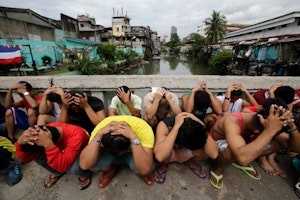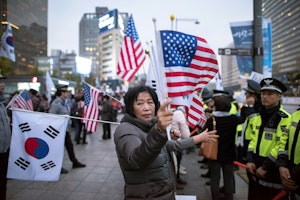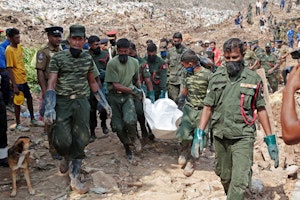Using the Law to Empower the People of the Greater Mekong
By Neung Kanmangmee

I will never forget the moment I realized that I was in the wrong line of work. Soon after graduating from law school in Chiang Mai in northern Thailand, I started a job with a local bank. I had a good salary and good benefits, but something never felt quite right. One day, I was asked to go to reclaim some possession from a client unable to pay his debts, including a motorcycle and a TV. When I walked into his house, I saw his two young children happily watching cartoons. I could not bring myself to follow through, and I quit my job not long after.
After some soul searching, I started working for the Thai Volunteer Service Foundation, a grassroots NGO supporting rural communities at risk from development projects. My salary was less than half of what I earned before. It is safe to say that my family questioned my career choices (and my sanity). But the communities were up against well-resourced governments and businesses and were powerless to fight back on their own. As a lawyer, I realized I could do more with my skillset than sitting in the office of a bank.
Thankfully, others have had the same idea. Today, I am part of the Mekong Legal Network, a unique grouping of lawyers in Southeast Asia that supports often-forgotten people through legal advocacy. The Network was launched by the NGO EarthRights International, a grantee of the Open Society Foundations, where I also have my day job.
We work with communities along the Mekong River, the “rice bowl of Asia,” which flows from the Tibetan plateau through Laos, Thailand, Cambodia, and Vietnam. Throughout the region, rapid economic development and investment have put the livelihoods of millions at risk. Much of this is in the hydropower sphere, where the rush to build dams—in particular in Laos, which aspires to become the “battery of Asia”—have displaced thousands and affected those who depend on farming or fishing for a living.
There is an often-neglected regional aspect to this investment. People suffer down river in Cambodia and Thailand when dam projects in Laos disrupt water flows. At the same time, much of the hydropower drive in Laos has been funded by money from Thai commercial and state-owned banks. But there are no real regional mechanisms or legal avenues for those affected to reclaim their rights.
This is where the Network, and its parent organization the Mekong Legal Advocacy Initiative, comes in. Our network of lawyers in the Mekong countries work together to share information, best practices, and to develop joint advocacy strategies. The aim is to ensure effective and coordinated action on a regional level. The Mekong Legal Advocacy Initiative is also an all-too-rare opportunity for young lawyers and leaders to gain the necessary experience and knowledge to carry out their work.
One of our current briefs is the Hongsa coal plant and mining project in Laos Xayaboury Province, which straddles the Thai border. The $4 billion project is mostly Thai-owned, but it’s also supported by Lao companies. Heavy metals released into water supplies from mining could seriously affect the health of residents on both sides of the border, who are at risk of cancer, birth defects, and respiratory problems. The project was pushed through without any meaningful consultation with those it most affected. We have worked with communities in Thailand to help them petition the Thai National Human Rights Commission about its serious implications.
There is no shortage of risks and challenges in our work. We always tell the communities we work with that they are the main actors, and we are just there to help them claim their rights. But training effective advocates is not easy, and explaining complex legal terms like environmental impact assessment requires a creative approach. This includes everything from using simple, relatable language, to visualizing legal strategies through maps and drawings. We also constantly factor into our work the risk of reprisal against communities by governments and businesses.
Ultimately, fundamental change will depend on whether governments in the Association of Southeast Asian Nations start making good on promises to build a truly “people-centered” region. States must work together to develop a standard approach to assessing the environmental impact of development projects, to mitigate risks from transboundary investment. Governments and businesses must also ensure that a respect for human rights and the environment is integral to all efforts. Just and equitable development is not optional; it’s crucial for the future of the Mekong Region.
For now, the Network will continue our work until decision makers start to catch on. I am doing this so that our children can grow up in a world where the environment is respected. When my son was born, my wife and I named him Than Dham—which means “justice river” in Thai. I hope that his generation will grow up to breathe clean air and fish in unpolluted waters, free from the fear of losing their homes so more room could be made for the next hydropower dam.
EarthRights International is a grantee of the Open Society Foundations.
Neung Kanmangmee is the mekong legal associate at EarthRights International.


